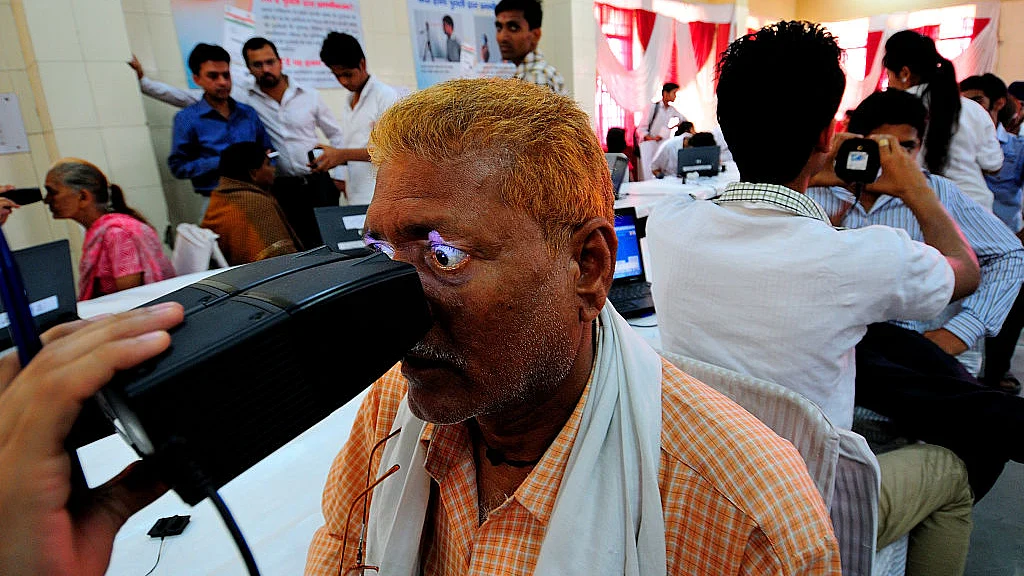Now you must link your PAN card and I-T returns to Aadhaar
The Govt has just taken one more step to keep watch on all transactions. The surveillance can be justified but is against the Aadhaar Act, Supreme Court rulings and can be misused

The Centre on Tuesday brought forward the proposal to amend the Income Tax Act, 1961 under the Finance Bill 2017. After July 1, if the Aadhaar number is not provided by a taxpayer at the time of filing I-T returns, then the Permanent Account Number (PAN) would be treated as invalid as well.
“The proposed move goes completely against what is said in the Aadhaar Act,” says Venkatesh Nayak of the NGO, Commonwealth Human Rights Initiative.
NDA Government’s proposal to make Aadhaar mandatory for filing income tax (I-T) returns and getting PAN is beyond the scope of the Aadhaar Act of 2016 and a gross violation of constitutional provisions. By giving the move the guise of the ‘Money Bill’, the government has again taken away the privilege of the Rajya Sabha to have a say on this important matter.
The title of the law is by itself self-explanatory: The Aadhaar (Targeted Delivery of Financial and Other Subsidies, Benefits and Services) Act, 2016. Though Aadhaar is not a proof of citizenship, the Act only envisages the targeted delivery of subsidies, benefits and services through the unique identity numbers to individuals.
The Supreme Court, in fact, has said that Aadhaar shouldn’t be made mandatory even for these welfare schemes. In its October 15, 2015 order, a Constitution Bench of the apex court had said that citizens couldn’t be forced to produce Aadhaar number to avail themselves of government welfare schemes and benefits. Last September as well, the apex court passed an order upholding the earlier orders disallowing the state from making UID mandatory.
The government, however, has been blatantly defying Supreme Court orders. Forget just welfare programmes, even other laws are being amended to make Aadhaar compulsory for matters not covered by the Aadhaar Act and the I-T returns and PAN just being the latest encroachment.
“This is a gross violation of the assurances that the Centre has been giving the Supreme Court in the pending PIL case against the constitutional validity of Aadhaar,” says Nayak.
Also, Article 110 (2) of the Constitution says that a Bill shall not be deemed to be a Money Bill if it is only aimed at the imposition of fines or other pecuniary penalties; demand or payment of fees for licences or fees for services rendered.
Imagine this scenario. Supposing the Finance Bill 2017 is passed, if an Aadhaar number isn’t quoted, a taxpayer will not be able to file his I-T returns and his PAN card could get invalidated too. Consequently, this could lead to penal action and imposition of penalties under the Income Tax Act. Now, doesn’t this contradict Article 110 (2)?
Article 110 of the Constitution says that a Money Bill does not need the approval of the Rajya Sabha, where, incidentally the NDA government falls short of numbers. With an overwhelming majority in the Lok Sabha, the BJP-led government has been taking the ‘Money Bill’ route often to avoid the Opposition having any say otherwise.
In fact, the Aadhar Act, 2016 was also passed through this method. That has been challenged in the courts, that is, the ‘mis-certification’ of the Aadhar Act as a ‘Money Bill" when it was tabled in Parliament.
Follow us on: Facebook, Twitter, Google News, Instagram
Join our official telegram channel (@nationalherald) and stay updated with the latest headlines
- BJP
- Constitution
- Rajya Sabha
- Supreme Court
- Parliament
- NDA Government
- Aadhaar
- NGO
- Income Tax Act, 1961
- Venkatesh Nayak
- Constitution Bench
- Commonwealth Human Rights Initiative
- Income Tax returns
- money bill
- Aadhaar Act
- UID
- I-T returns
- PAN card
- Finance Bill 2017
- taxpayer
- Permanent Account Number
- Article 110 (2)
